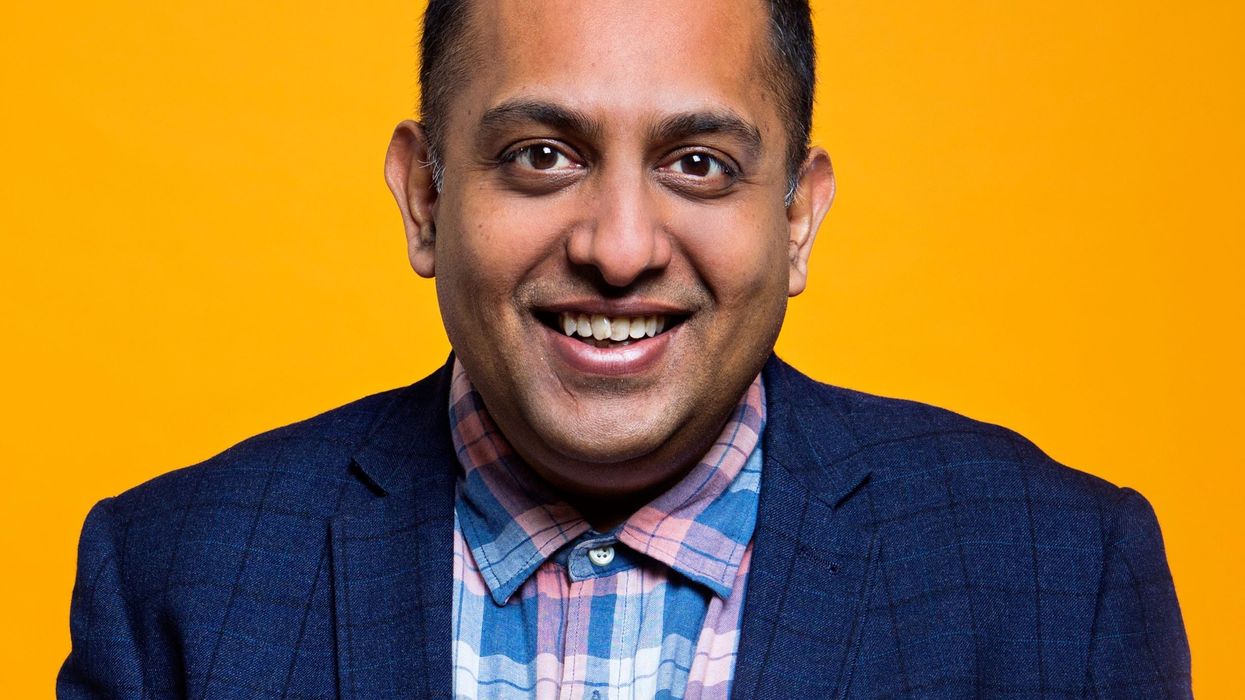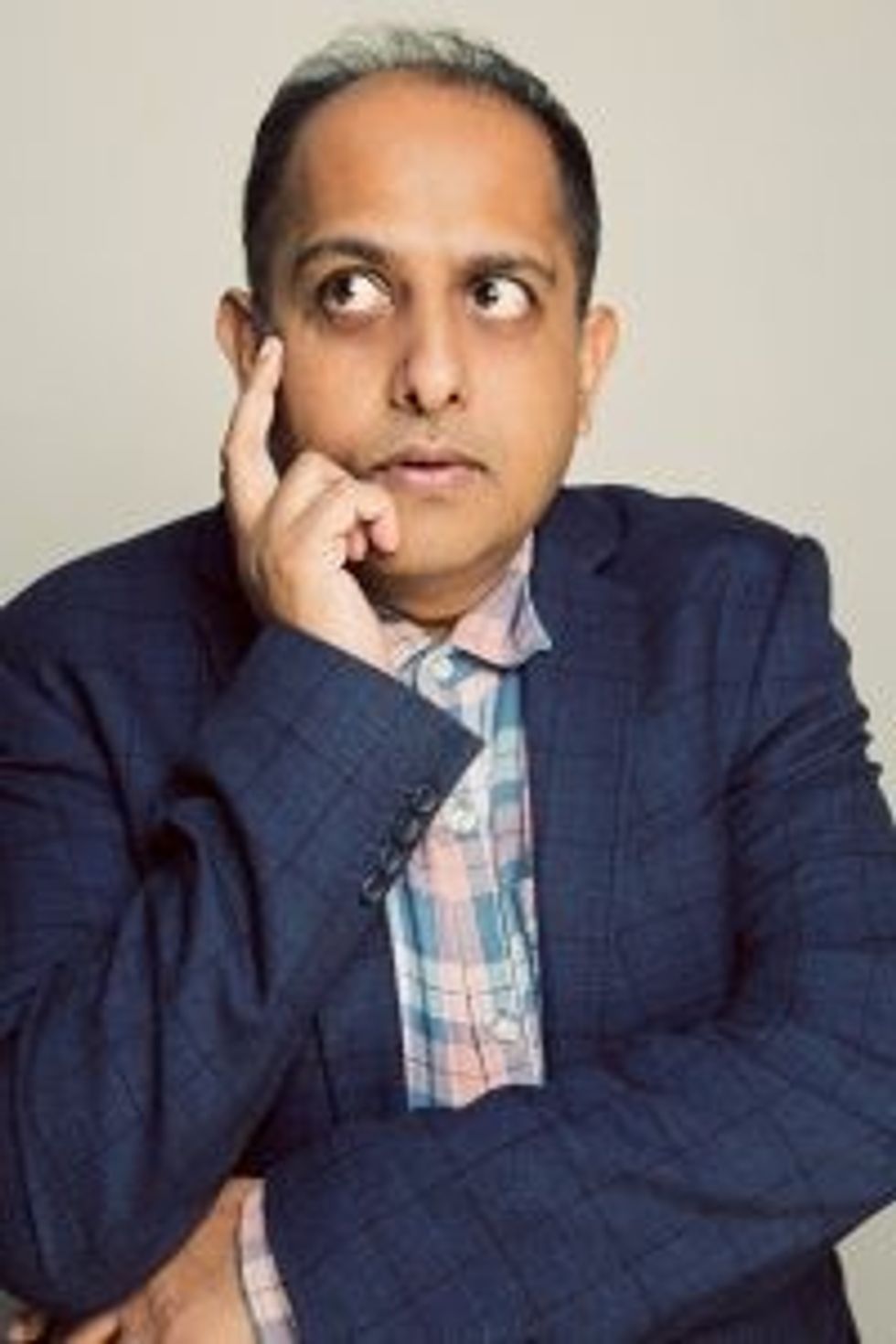A LEADING Indian comedian has criticised the country’s alleged “censorship of comedy” ahead of the launch of his Amazon Prime show.
Anuvab Pal, 45, has become popular in the UK since his first performance in this country five years ago.
His most recent show, Empire, which debuted at the Edinburgh Fringe in 2018, is set to launch on Amazon Prime in May (6) as part of their Soho Theatre Live series. The show sees him talk about the British Empire and its impact on India in the modern day.
In an interview with Eastern Eye, Pal said, “I don’t think you can take potshots against leaders in India currently, I mean, I wouldn’t risk it”.
Indian comedians have been attacked or arrested in previous months.
Munawar Faruqui was held in prison for more than a month after being accused of insulting Hindu gods and goddesses, and last November cancelled three shows in Mumbai after a right-wing group threatened to set the venue ablaze.
Another comedian, Vir Das, was forced to defend himself against online accusations of “insulting the country” after he performed a “two Indias” monologue in Washington in November 2021.
Pal told Eastern Eye, “It’s always worrying when India becomes efficient at coming down on comedians or any kind of dissent”.
However, he said he is not a fan of simply using comedic political rants purely because he has an opinion.
“It’s funnier if you can base it on some fact you know, so both sides of the political spectrum can look and say ‘ok, this is ridiculous.’”
Pal said he’s careful about approaching the topics of religion and new cultures.
“I’m always wary of going into a new culture and just trashing that culture for no reason and with no knowledge. I feel like I don’t have a right to do that as a comedian,” he said.
Instead, Pal said comedians learn about a culture before making jokes about it.
The main theme of his new show is the British Empire, something which has become an increasingly controversial topic in recent years. For comedians, using divisive topics as material can put them at risk of being “cancelled”, but Pal argued an element of common sense is needed.
“As long as you’ve picked the angle you think in your conscience is sensible, then I don’t think you can be cancelled”, he said. He argued that comedians who want to be offensive for the sake of it have “a different goal” to most of the profession, who search for a topic’s funniest angle.
Pal also suggested comedians try to avoid getting cancelled by ensuring their comments have strong logic.
“As you can’t be dismissed in one sentence, then your argument has validity,” he said.
“People would send messages, saying, ‘we were going through a really rough time and the comedy really helped us,’” he said.
As audiences attended live comedy gigs post Covid, one of the biggest changes he saw was people’s desire for company.
“People just wanted to be with others and laugh,” he said. Pal believes while online comedy performances helped many, stand-up comedy needed to be back on stage.
“It has to feel like you’re in the Roman circus,” he said.
This year marks 14 years since he got his big break in stand-up comedy after walking into The Comedy Store Mumbai as a scriptwriter.
Pal recalled he was sent there to write an article on the newly-opened venue and reflect on whether British comedy could succeed in India.
Once there, Pal was asked by the owner if he’d do five minutes of stand-up as they didn’t have enough Indian comedians to fill the line-up.
“I just thought it’d be a laugh and I did it and that’s how it started. I thought it’ll just be three minutes and I’ll forget about it,” he said. However, his set went down so well, his career took off and the rest is history.
Pal is keen to encourage aspiring comedians.
“There’s a lot of humour in our culture; we don’t often look at it,” he said. Pal argued the Indian focus on making money and therefore “succeeding”, meant that humorous aspects of life are missed, such as the competitiveness of extravagant Indian weddings.
Recent successes of comedians from India and abroad, such as Pal, Das and Russell Peters (see interview on page 23) have shown Indian comedy is in demand.
History, in particular the ties between Britain and India, is a favourite topic for Pal. He also enjoys comparing the Indian diaspora and those living on the subcontinent. “I like talking about how it’s different for south Asians living in Britain, versus Indians in India,” he said.
Audiences at his shows can expect a discussion of society, politics and literature through a comedic lens.
Emphasising the links between India and the UK, Pal said his comedy inspiration is Eddie Izzard. “She just makes you know, politics and history so accessibley,” he said.
Following the success of his BBC Radio Four show Empire-ical Evidence in 2018, Pal hopes his new Amazon Prime show “starts a conversation about empire”, he said.





